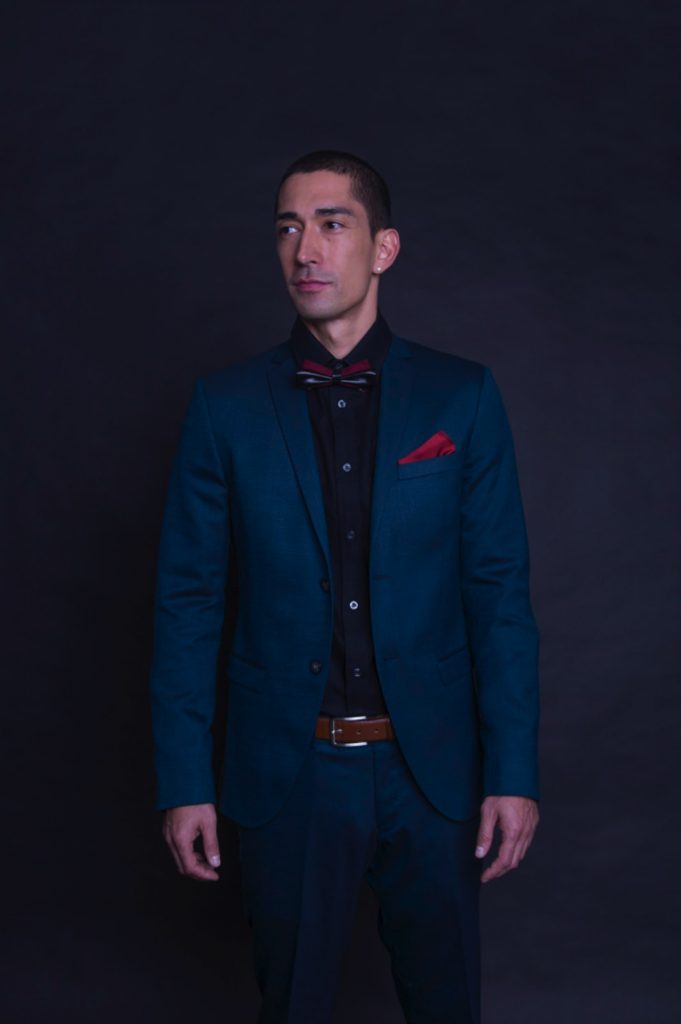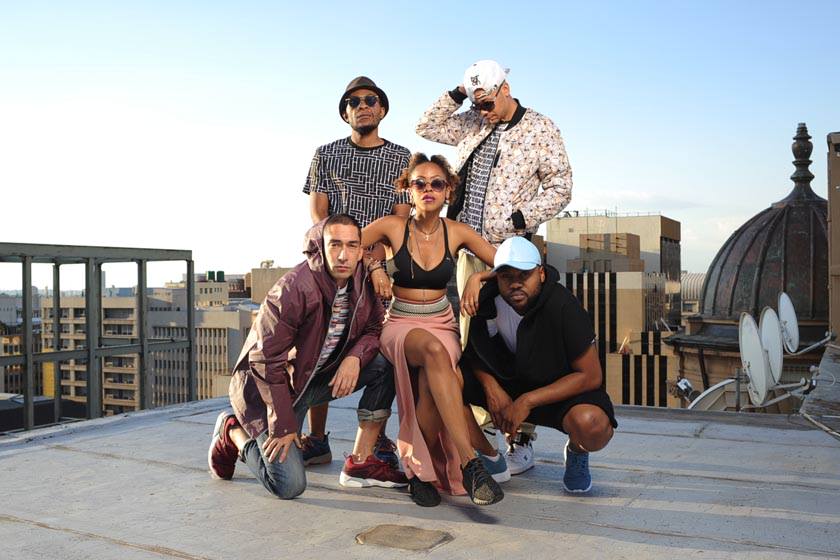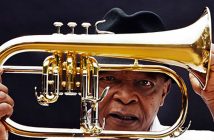In preparation for One Sight Acoustics, we chat to the Kool Out Lounge founder, Akio Kawahito, about his journey into the music industry, why his partnership with Reason has thrived and keeping a global mindset with the work you put out there.

You’ve been scouring the globe, making homes in the US, Japan and Amsterdam. What drew you to South Africa?
While I was studying in Amsterdam, a friend of mine did her fieldwork in Cape Town at Bush Radio and told me a lot about the city and the thriving hip hop culture. I was looking for a place to go after I graduated, so I did a bit more research and found that Cape Town had really preserved hip hop in its purest form. I got a few contacts from my friend at Bush Radio and started to make contact with some people this side. We eventually put together a project and I got on plane for a eight month trip that has turned into nine years.
Internal relations and youth empowerment and development through music. Can you tell us about those beginnings and how they play a role in your life now?
Hip hop played a really important role in my development as a person and finding self confidence in myself growing up as a half Japanese kid in a small town in Tennessee. I come from the Golden Era of Hip Hop and am particularly influenced by the late 90s/early 2000s when movements like the Lyricist Lounge and Soundbombing were really popping off. As much as it was about fun, there was a certain conscious element to it. I think that really stuck with me and after I finished my studies, I wanted to find a way of combining my degree with my passion and I decided youth development through music was the avenue. Unfortunately over time, the recession dried up the funding and realities of life kind of set in, so I was forced to move away from this work and focus on music as a business full time, although I guess this was a blessing as well. Today, we have an internship program at Kool Out where we try and help young kids develop skills that will assist them in the job market. Additionally, I try to participate in as many workshops as possible on a wide range of topics from entrepreneurship to music industry assistance.
You’ve worked with the community in the Cape Flats. Could you expand on what work you invested into that space and how it benefitted them?
This was some of the most rewarding work I’ve done in my life. We did a wide range of projects ranging from life skills, anti-xenophobia and health. It was a lot of fun because we had so much creative freedom to develop our own curriculum – so we used poetry, rapping, breakdancing, graffiti, and drama. I also had the opportunity to see such a large part of Cape Town by working in Delft, Atlantis, Mitchells Plain, Khayelitsha and Gugs. I still maintain a lot of these relationships today. It’s difficult to gauge the long-term success on a large scale, especially since we never got funding past our mandate, but I know for sure that we reached some kids and it’s great to be able to see them grow into successful adults.
Did you envision this kind of success when you first started Kool Out Lounge?
Naw. Definitely not. I just started the event because there wasn’t any real Hip Hop on Long Street. At the time, The Waiting Room didn’t even allow hip hop, so the event was really groundbreaking in that we brought such a diverse crowd and created an event that influenced an entire generation.
How did the expansion of Kool Out Concepts formulate – tell us about the team’s dynamic and how like-minded individuals came together to create a space that works as an asset to events and campaigns.
We had a lot of different members come and go over the early years, but things really started to pick up when DJ Raiko joined the crew. He had just returned to Cape Town and had been very influential in his previous stint there. It was at that time that Kool Out was really on the rise and with the rand at its strongest rate against the dollar, we decided to try and expand nationally by bringing some international artists to South Africa. We branched off to Joburg and brought some great acts over and in the process lost a ton of money, but I guess that’s the way it goes when you’re building your brand.
Eventually we decided that we had reached our ceiling in Cape Town and moved to Johannesburg. At this point, we added P-Kuttah who was Durban’s top hip hop DJ who had also relocated to Joburg, as well as Reason, who was an up-and-coming underground rapper, to be the host and kind of face for the brand. We struggled heavily the first year, but made one really smart move. When we scouted Johannesburg for venues to do Kool Out Lounge, we decided to avoid all the current hotspots and went with Kitcheners in Braamfontein. People thought we were crazy. At the time, that section of Braam didn’t even have a street light and Kitcheners was a shell of what it is today. We slowly built a crowd and soon all our competitors who had ridiculed us were having their own nights as well.
At this point, brands started getting interested in what we were doing, so things moved from music to business. We eventually got an office space and then later moved our office to a rooftop so that we could develop it as a venue. We needed someone who wasn’t an artist to come on board and run the practical everyday work for Kool Out and hired Banesa Tseki who I knew from Cape Town and had worked as an events promoter and artist manager.
This year, one of the biggest young names in Hip Hop, DJ Speedsta, joined the team. We had done some work with him in the past; he was drawn to the authenticity of the brand and we respected him as one of young talents in the industry that knew what he was doing.
Now Kool Out has moved into a venue, management agency, recording studio, consultancy, and overall creative space with eight employees and two interns.

When the industry gifts you with accolades for your contribution to music, how does it provoke your ways of thinking? Does it instill the drive to outdo yourself every step of the way? What do the awards symbolise for you?
Well, I think I’ve been nominated for 7 South African Hip Hop Awards, but am still empty handed, so I think I still got that drive to succeed and get something one day. That being said, these awards didn’t exist when I started doing this, so they were never the objective. I think at this point in my career, it’s more about bigger projects and legacy. We all have these grand creative concepts that we want to produce and I think accomplishing that is the main motivation.
Reason seems to be well established in his craft, which has been assisted by your support and direction. Tell us about your dynamic?
He had been a member of Kool Out for a few months and then we were both booked separately at Back To The City. He needed a DJ, so I jumped on his set and from then on we worked together in that capacity. About a year later, he asked if I could help him out with a bit of management and I reluctantly agreed because as the time my career was really taking off. Soon after we released “Audio 3D” and Reason’s career began to grow so fast. Everything began to happen and I was forced to learn the insides of the music industry and management, but we picked things up quickly together. It’s been an incredible journey where our differences have helped to create a balance that has allowed us to thrive.
Kids are trying to make it in any which way possible – sending tracks to local stations and producers and organising niche underground events just to get their rhymes & beats heard. Do you have a couple of tips for people to set themselves up for success?
These days, everyone’s a rapper, DJ, or producer, so the market is saturated and the competition is high. The two most basic tips I would offer are to:
- Create your own platform. Don’t wait for promoters to book you. Book yourself.
- Build a network. Lots of promoters don’t actually care about the music, they care about money. Build a base of loyal fans that will attend your events that you perform at. When promoters start seeing the needle move on attendance when you’re on the lineup, you’ll see your opportunities grow.
Your diverse selection of tracks during your DJ sets always get the crowd going. How do you read what your audience wants? Do you pick up on the mood or energy of the space? How do you know when to shift the pace and tempo?
Playing for crowds I don’t know is one of my favourite challenges. I try to prepare a bit for an audience so I have a template, but it’s a lot of “jabbing” in a way to see how the crowd reacts to a particular song. Once you see them vibing in a certain direction, you have to start connecting your music selection based on what they’re giving you. You also have to take some chances. A DJ one told me if you’ve never cleared the dance floor then you’ll never develop your sets. I’ve always been a fan of change of pace and shifting tempo dramatically maybe once in a set. It’s almost like a release for the crowd to go from upbeat to a slow sing along.
What genres of music does South Africa elevate in compared to other countries you’ve travelled to?
I think a lot of house music is undeniably on an international level. Hip hop has made huge strides over the years and is really catching up in terms of production and quality.
You’ve opened for some of the greats, such as Talib Kweli, BadBadNotGood and Kendrick Lamar. Do you feel like there is a great responsibility to set the tone before these guys hit the stage or do you just do your thing and hope new audiences (and the headliners) react well?
Well, I think a lot of us really take it upon ourselves to kind of show out and prove that locally we’re on the same level as these internationals. We’re never trying to upstage them (if that’s even possible), but at the same time, we don’t want to see ourselves as the local act. That type of mentality will keep you local. We always feel we deserve to be on the same stage so it’s about doing my best to make an impression.



